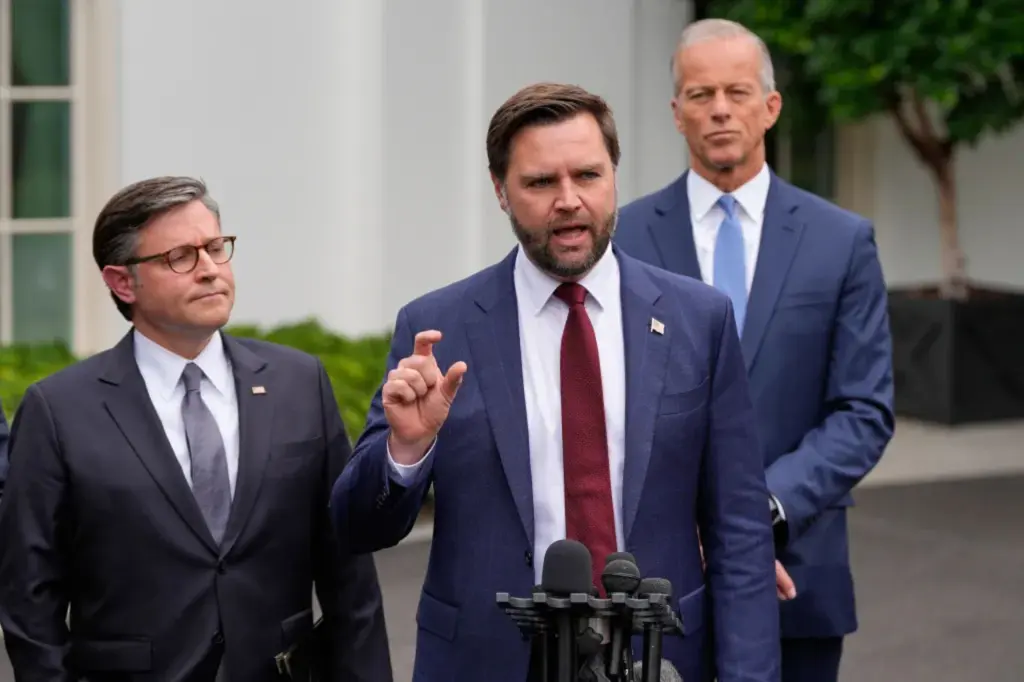‘Democrats won’t do the right thing’
WASHINGTON — The federal government was on course Monday night for its first partial shutdown in nearly seven years after talks between President Trump and Republican and Democratic leaders in Congress wrapped up without a funding agreement.
“I think we are headed into a shutdown because the Democrats won’t do the right thing,” Vice President JD Vance told reporters on the White House lawn, flanked by House Speaker Mike Johnson (R-La.) and Senate Majority Leader John Thune (R-SD).
Moments earlier, Senate Minority Leader Chuck Schumer (D-NY) and House Minority Leader Hakeem Jeffries (D-NY) told reporters that “very large differences” still remained over cuts to various health care programs.

Jeffries called it a “frank and direct discussion … but significant differences remain.”If no agreement is reached quickly, all nonessential government operations would cease at 11:59:59 p.m. Tuesday — the first government shutdown since a stalemate that lasted 35 days in late December 2018 and early January 2019.
“Trump was seemingly annoyed that Schumer and Jeffries had leverage, even though Schumer and Jeffries don’t see their issue [healthcare and hospital funds] as leverage,” a Democratic source briefed on the Oval Office sitdown told The Post.
“Trump was visibly bothered by the fact that the two men he has made an effort to ignore were now impossible to ignore because they could shut down ‘his’ government,” this person added. “A shutdown makes Trump’s power seemed checked, and that’s a disaster in optics for a White House that has worked quite hard to architect unprecedented power.”
A second House Democratic aide affirmed that Jeffries and Schumer’s “firm ‘no deal’” declaration “ups the chances” of a shutdown.
All but one House Democrat voted earlier this month against a stopgap measure to fund the government at current levels until Nov. 21 — but the GOP majority passed it before the lower chamber went into recess last week for Rosh Hashanah.
In the Senate, Democrats kept the same funding bill from clearing the 60-vote filibuster, in large part due to its failure to fund Affordable Care Act subsidies that would expire at the end of 2025.

Schumer hasn’t fully committed yet to a shutdown, as he did days before a similar stopgap bill passed Congress in March with the help of a handful of Senate Democrats.
The decision not to force a confrontation with the White House and congressional Republicans caught Schumer flak from his party’s progressive base, perhaps making him more set against a vote for a so-called “clean” continuing resolution.
Meanwhile, White House Office of Management and Budget Director Russ Vought has threatened mass layoffs of non-essential government employees following any shutdown.
“I don’t know how Schumer surrenders without his base going apes—, but he knows that Russ Vought has been dreaming of this moment for two decades,” quipped one Senate Republican aide.
“We feel rock solid,” a second GOP Senate aide said. “Republican Senators have zero interest in compromising.
“Chuck Schumer owns this, we have all the leverage, and they’ll lose the political fight.”
